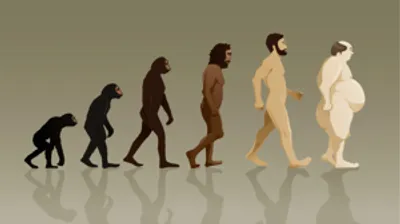I have asked before on this site, “How did you sleep?”, because I may be even more convinced than you are on the benefits of sleeping well. In fact, sleep problems are among the most commonly cited reasons for seeking medical attention. We all know that we feel better when we get a good night of z’s, and medical researchers know there is more benefit than that.
The Paleo Diet has been inspired by the study of our own human history. The Paleolithic Period began about 2.6 million years ago with the first use of stone tools by pre-historic humans and ended about 10,000 years ago. In the Paleolithic Period, humans formed small groups and survived by hunting and gathering food. The end of the Paleolithic Period is marked by human groups settling in one era, introducing agriculture, religion and culture that has survived to the current day.
Following closely on the heels of a media fest over a study positing a causative role for red meat in the development of heart disease, a seemingly diametrically opposite result has come of a different study, th
In recent news from the Department of Health and Human Services, we learn that the National Vaccine Injury Compensation Program has awarded almost $6 million to 49 victims in claims made for injuries received after vaccination with the controversial HPV (human papillomavirus) vaccine.
A recent study published in the journal Nature compared the effect of eating sirloin on measured blood levels of TMAO (Trimethylamine N-oxide if you’re curious), a compound produced by gut bacteria presumably in response to carnitine in the meat, and previously associated with an increased risk of heart disease.
Breakfast Now that you’ve had your tea…
The first week of April is actually National Public Health Week (NPHW) and includes World Health Day. Oh, if only every day were actually devoted to health. All year long we have days, weeks, and months devoted to disease awareness, all well and good.
The second session of my class on losing it (weight, inches or inflammation – or all three!) is underway, and for those who didn’t make it into the class, I want to talk about the main focus of the class: reducing carbohydrate intake.
Two new statistics, updating the incidence of autism to 1 in 50 in the US currently and that of attention deficit hyperactivity disorder (ADHD) to 1 in .
Recently reported in the American Journal of Public Health and widely covered in the general press, is the analysis of mortality data from the US, collected in 2009 compared with records of alcohol consumption. The investigators found an association – this was not a study that tested the effect of alcohol, but only one that observed patterns – that suggested 3.5% of US cancer deaths in 2009 might be attributed to alcohol use.




